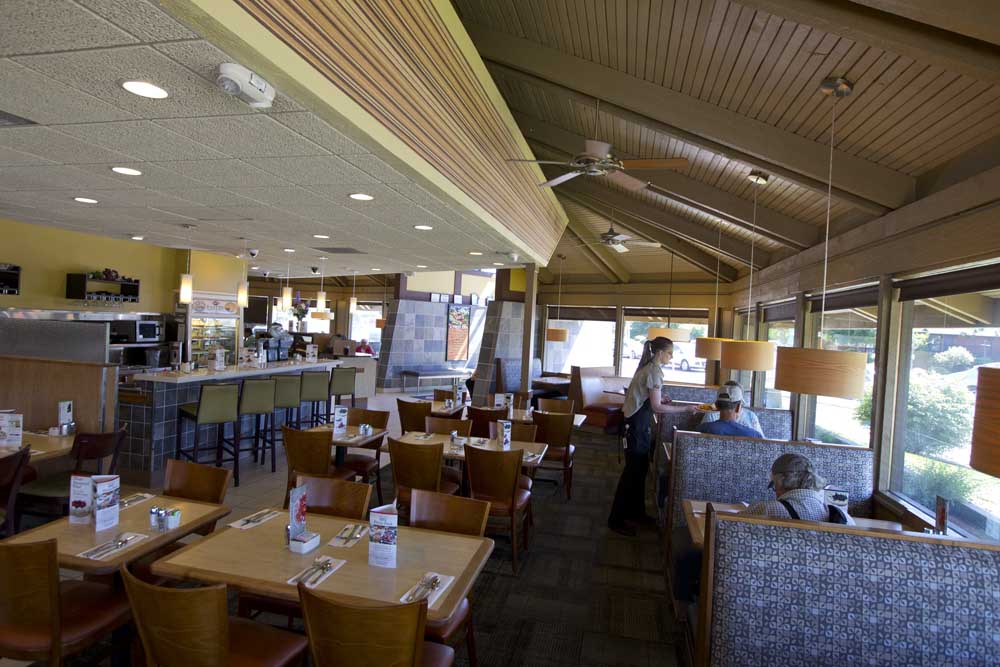Wilson, Buffalo Bills’ founding owner, was NFL fixture
Published 12:00 am Wednesday, March 26, 2014
Ralph Wilson, who founded the Buffalo Bills as an original member of the American Football League in 1960 and saw them go to four Super Bowls as the only owner in the team’s history, died Tuesday at his home in Grosse Pointe Shores, Mich. He was 95.
The Bills’ president, Russ Brandon, announced the death at the annual National Football League owners’ meeting.
Wilson had expressed the wish that when he died, the first announcement would be made by the NFL commissioner to his fellow owners.
When word came of his death while the owners were meeting in Orlando, Fla., Commissioner Roger Goodell cleared the room of team executives so that only the owners themselves remained. Then he told them of Wilson’s death.
When Wilson obtained an AFL franchise for $25,000 in 1960, he joined seven other founding AFL team owners in a daunting challenge to the long-established NFL. They were nicknamed the Foolish Club. He was the last member of that “club” who remained active in the NFL. Of the original eight, only Barron Hilton, the founder of the Los Angeles Chargers (now the San Diego Chargers), survives.
The AFL had a rocky financial start, but it ultimately thrived, and Wilson played a leading role in talks that led to its merger with the NFL in 1970. His Bills won two AFL championships and played in four consecutive Super Bowls in the early 1990s, but lost each time, to the New York Giants, the Washington Redskins and twice to the Dallas Cowboys.
Wilson was inducted into the Pro Football Hall of Fame in 2009.
When Wilson, a Michigan businessman, applied for an AFL franchise, he wanted to put a team in Miami but could not reach a deal for use of the Orange Bowl. He settled on Buffalo, and revived the name of the team that played there in the All-America Football Conference of the 1940s.
“I thought it was a big gamble to go into a new league and certainly a very big risk — like starting an automobile shop in our garage and bucking Ford and GM,” Wilson told The Pittsburgh Post-Gazette in 2009. “But I always like to take a risk, here or there. And I love the game so much that I thought it was worth a try.”
His friends in Detroit were skeptical. “I was ridiculed, all around the area,” Wilson said. “They used to leave me at cocktail parties all alone, in the corner, with a scotch. We got lucky, though, and it worked.”
The team originally played at War Memorial Stadium, built in the 1930s and known as the Rockpile. They moved into a new stadium in Orchard Park, N.Y., a Buffalo suburb, in 1973, and it has been known as Ralph Wilson Stadium since 1998.
One of the NFL’s small-market teams, the Bills have recently been valued at upward of $790 million by Forbes magazine. In 2013 the team reached a $130 million deal with New York state to renovate the stadium to keep the team in Orchard Park for at least seven years. Under the terms of the deal, the state will pay $54 million, Erie County will pay $41 million and the Bills will pay $35 million.
Wilson had said that his family would not run the Bills after his death and that the team would be sold.
Ralph Cookerly Wilson Jr. was born on Oct. 17, 1918, in Columbus, Ohio, and grew up in the Detroit area, where his father owned an insurance company. He became a Detroit Lions fan.
He received a bachelor’s degree from the University of Virginia, attended the University of Michigan Law School and served in the Navy during World War II.
Wilson later expanded the family business into Ralph C. Wilson Industries with interests in insurance, television stations, highway construction, oil and gas drilling and automotive parts, and he owned a small stake in the Lions when he got his AFL franchise.
Wilson had an unassuming manner. “No one wants to see the white-collar owner who’s the corporate type,” quarterback Jim Kelly told The New York Times. “He comes out and catches passes. He treats us just like one of his kids.”






